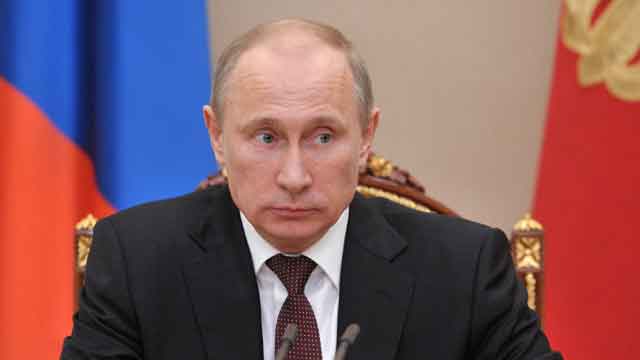MOSCOW – In a spiteful move reminiscent of the Cold War era, Russian President Vladimir Putin on Friday signed a bill banning American families from adopting Russian orphans, apparently in retaliation for U.S. criticism of his nation's human rights record.
The law blocks dozens of Russian children expected to be adopted by American families from leaving the country and cuts off one of the main international routes for Russian children to leave often dismal orphanages. Russia is the single biggest source of adopted children in the U.S., with more than 60,000 Russian children being taken in by Americans over the past two decades.
The U.S. State Department previously expressed deep concern about the Russian measure.
Spokesman Patrick Ventrell said late last week that American families over the past two decades "have welcomed more than 60,000 Russian children into American homes."
"The welfare of children is simply too important to be linked to political aspects of our relationship," Ventrell said.
- Putin backs ban on US adoptions of Russian children
- Unauthorized anti-Putin rally draws thousands
- Putin orders checks of Sochi Olympic sites for damage after quake in the Black Sea
- Vladimir Putin offers ‘Green Card’ actor Gerard Depardieu a Russian passport
- Putin says Russia recognizes need for change in Syria, repeats call for dialogue
- Putin, vigorous despite recent back trouble, defends himself in annual news conference
U.S. Ambassador to Russia Michael McFaul also said last week that the bill would “link the fate of orphaned children to unrelated political issues.”
He noted that the two nations had already struck an agreement to improve safeguards to protect adopted Russian children, and said "it is unfortunate that now the Duma has apparently decided to take away these negotiated safeguards and ignore the hard work and negotiations on both sides that went into putting this agreement together."
The bill is retaliation for an American law that calls for sanctions against Russians deemed to be human rights violators and part of an increasingly confrontational stance by the Kremlin against the West.
Putin said U.S. authorities routinely let Americans suspected of violence toward Russian adoptees go unpunished — a clear reference to Dima Yakovlev, a Russian toddler for whom the bill is named. The child was adopted by Americans and then died in 2008 after his father left him in a car in broiling heat for hours. The father was found not guilty of involuntary manslaughter.
Putin indicated that he would endorse the measure Thursday.
"I still don't see any reasons why I should not sign it," he told a televised meeting. He went on to say that he intended to sign it.
UNICEF estimates that there are about 740,000 children without parental custody in Russia, while only 18,000 Russians are now waiting to adopt a child. American adoption advocates say the move sentences untold numbers of Russian kids to a childhood without loving parents.
"Over the last 20 years 60,000 children have been adopted from Russia," said Lauren Koch, spokeswoman for the National Council for Adoption. "If this bill is enacted, this means that tens of thousands of children will languish in orphanages.
"As you know this bill is in response to a human rights bill that President Obama signed," Koch continued. "But really what they are doing is creating another human rights issue. Those children deserve the hope and promise of a loving family."
The U.S. State Department says it regrets the Russian Parliament's decision to pass the bill, saying it would prevent many children from growing up in families
Critics of the bill have left dozens of stuffed toys and candles outside the parliament's lower and upper houses to express solidarity with Russian orphans.
Children rights ombudsman Pavel Astakhov on Wednesday said that 46 children who were about to be adopted in the United States would remain in Russia in case the bill comes into effect. On Thursday, he petitioned the president to extend the ban to other countries.
"There is huge money and questionable people involved in the semi-legal schemes of exporting children," he tweeted.
The Associated Press contributed to this report


